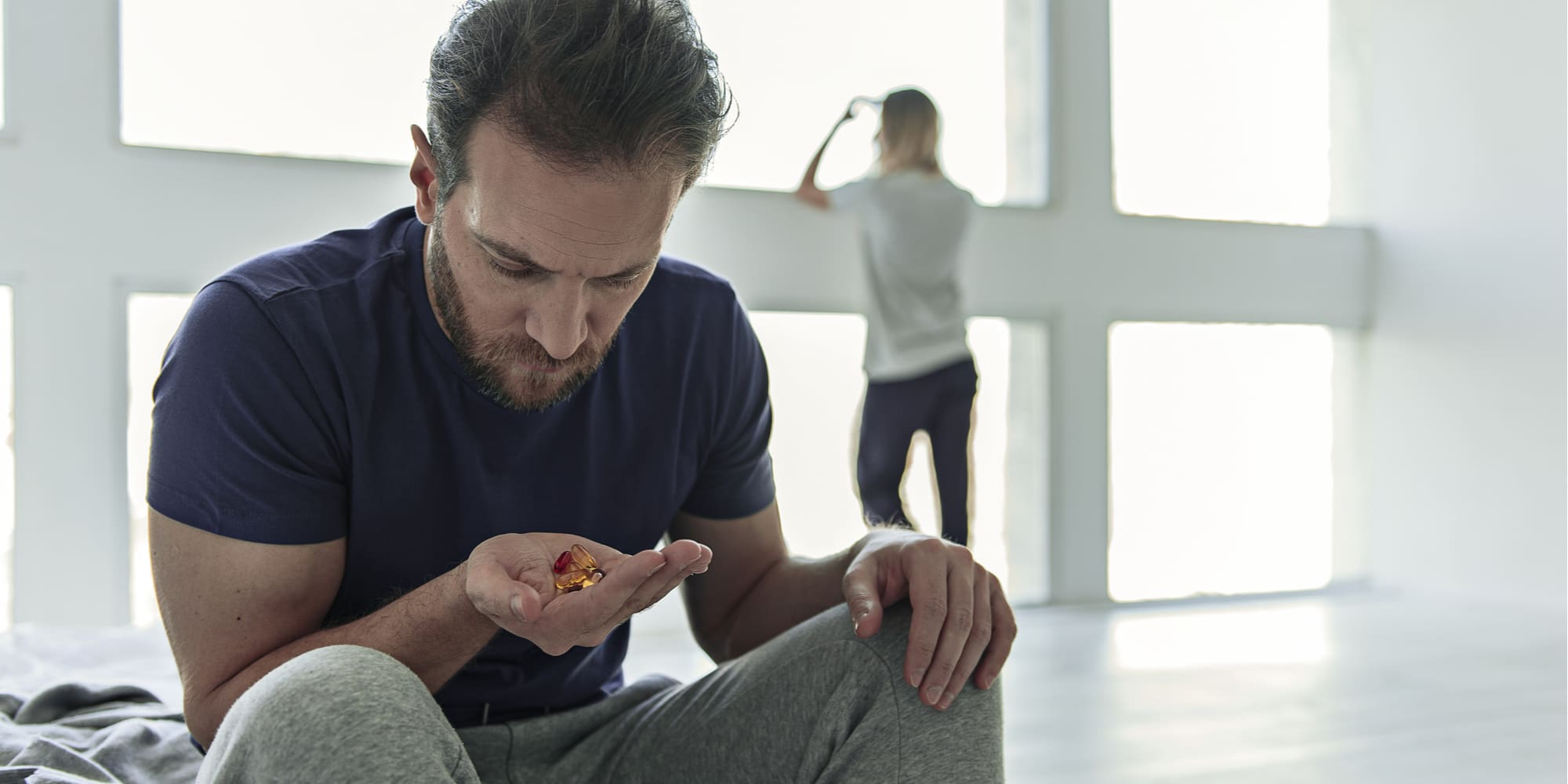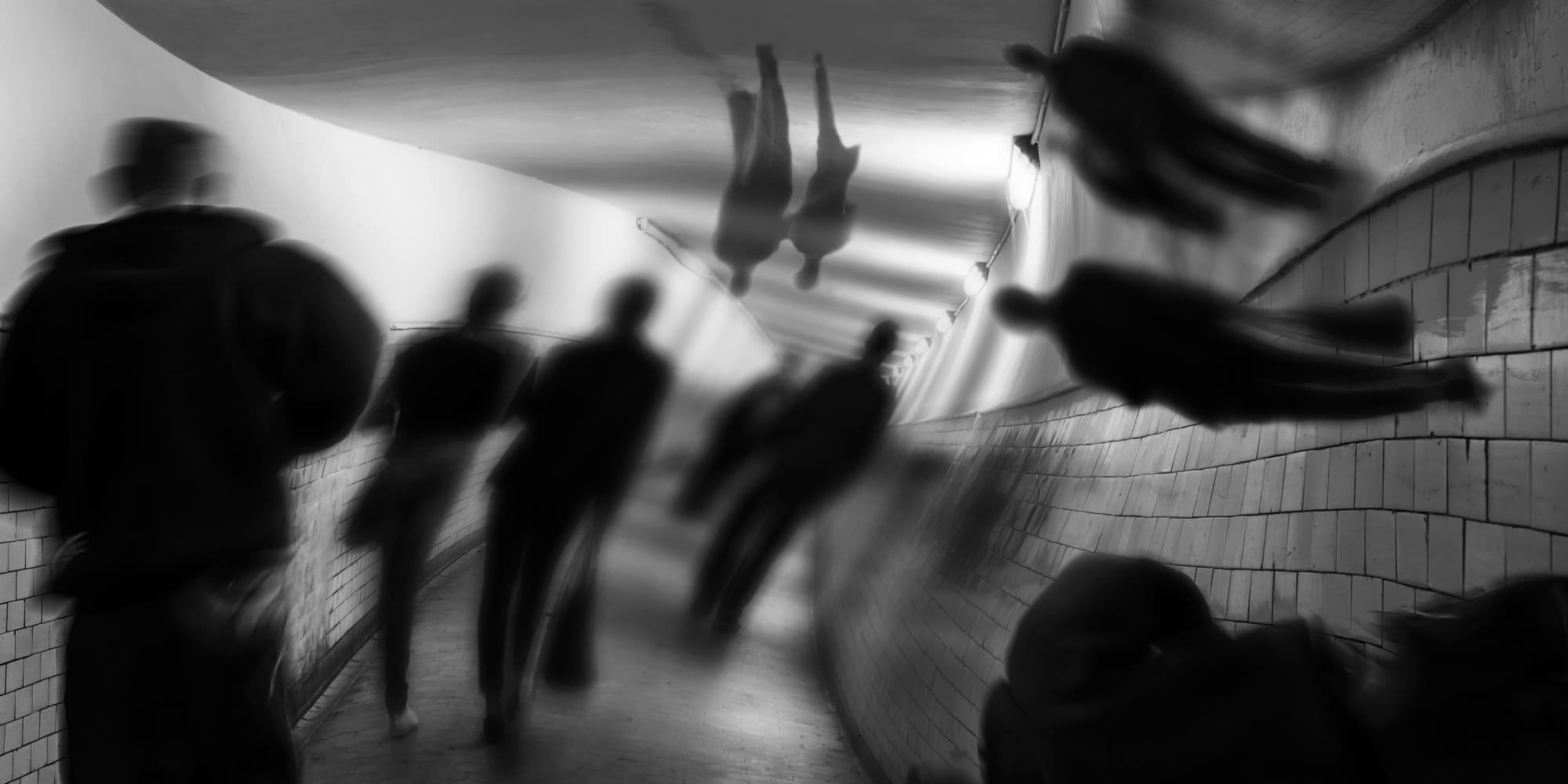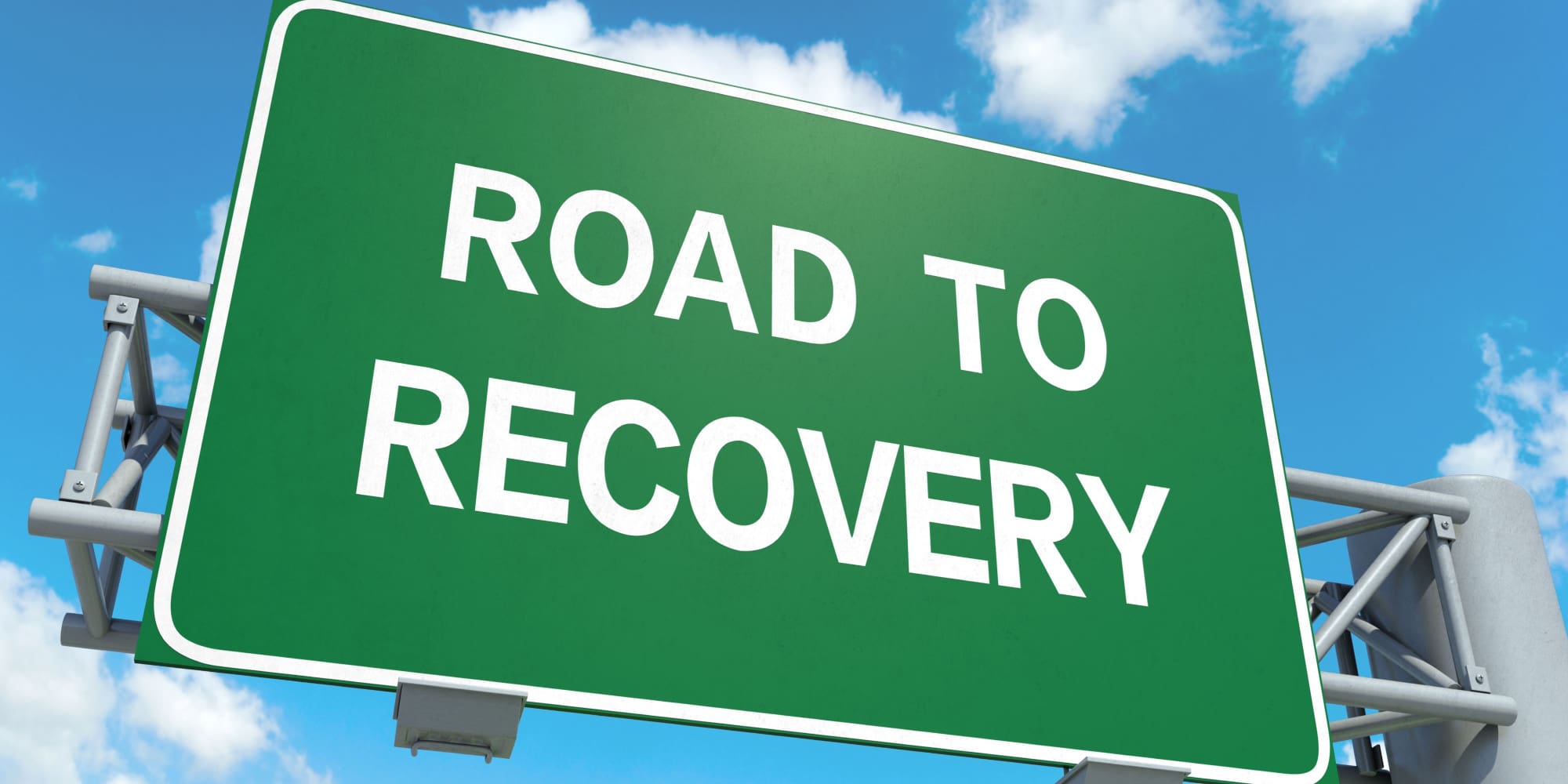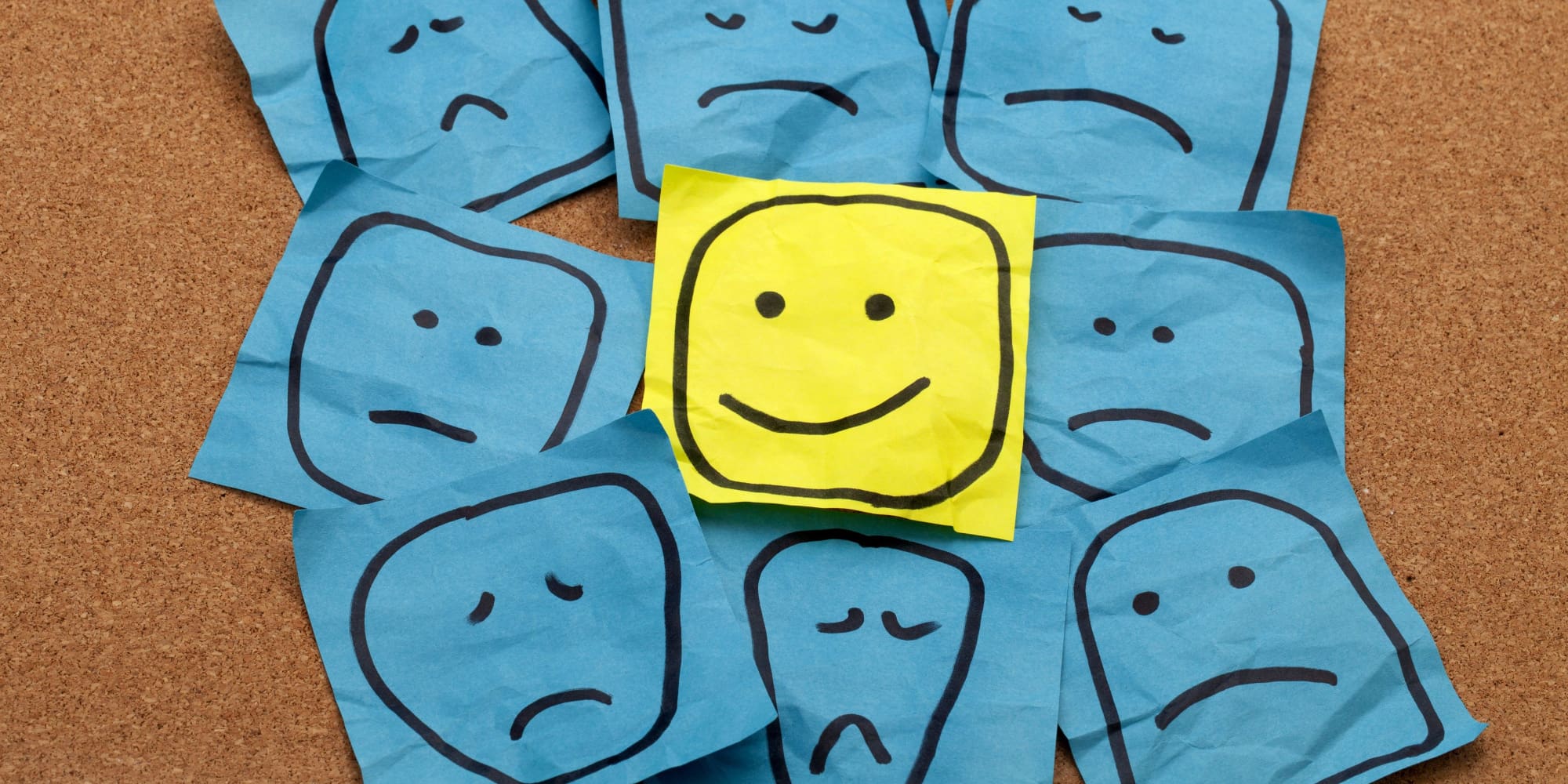When you suspect alcohol or drug addiction in a loved one, it’s natural to feel scared or concerned. But the best thing that you can do is take a step back and try to objectively look at your loved one’s recent behaviors, and that starts with learning about the signs of addiction.
Signs of addiction vary depending on the person, their situation, and the substances they’re abusing. Keep reading for a look at different types of drug and alcohol addiction and their common symptoms.
Contents
Signs of Drug Addiction
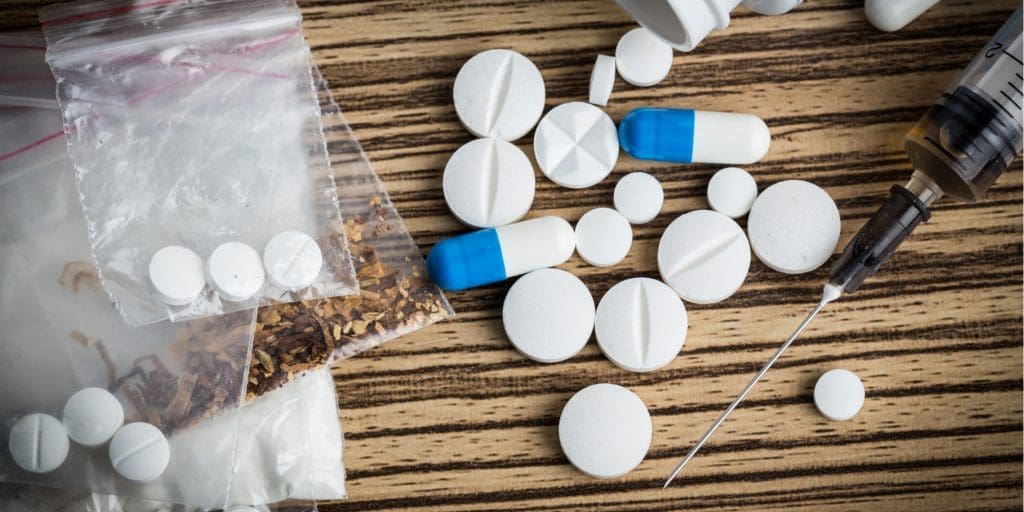
Drug addiction symptoms vary depending on what drug the person is taking. For example, the signs of a pill addiction could look very different from the signs of cocaine addiction due to differences in the drugs’ chemical makeup, how they’re taken, and other relevant factors.
For that reason, we’ve broken down the signs of addiction into categories based on the drug being taken. Let’s start with a look into the signs of opiate addiction.
Opiate Addiction
Opiates come in many different forms, from prescription drugs like OxyContin to illicit opioids like heroin. In many cases, individuals start taking opiates for real health concerns like chronic pain. However, over time, increasing dosages can lead to an opioid addiction, which can include transitioning from prescription opioids to illegal opioids like heroin and other synthetic opioids available on the street.
The signs of opiate addiction can include:
- Poor decision making
- Lack of motivation to accomplish goals
- Financial stress
- Stealing
- Drowsiness
- Nausea and vomiting
Keep in mind that the signs of heroin addiction (or other opiate addictions) can change over time. This typically means developing new symptoms of addiction as opioid dependence becomes more severe.
Cocaine Addiction
Where opioids often make individuals more relaxed, cocaine has more of an energizing effect. As a result, the signs of addiction for cocaine are dramatically different than those for opioids.
Common signs of cocaine addiction are:
- Sudden bursts of energy
- Loss of appetite
- Mood swings
- Paranoia
- Light sensitivity
Because cocaine is a central nervous system stimulant, many people seem to have sudden, intense bursts of energy when using cocaine. When trying to tell if your loved one is using cocaine, watch out for these sudden changes in mood or behavior.
Meth Addiction
Like cocaine, methamphetamine is a stimulant, so many people notice increased energy in their loved ones with meth addictions. However, there are certain signs of addiction that can help differentiate meth addiction from cocaine addiction.
Signs of meth addiction include:
- Agitation
- Burns on the lips and fingers
- Sudden onset of tics or facial spasms
- Abrupt and extreme weight loss
- Tooth loss and decay
Bear in mind that methamphetamine addiction sometimes coincides with addiction to other stimulants. This can make identifying signs of addiction difficult, but seeing several signs of stimulant abuse should be taken seriously, even if you cannot readily determine exactly which drug(s) they are taking.
Signs of Alcohol Addiction
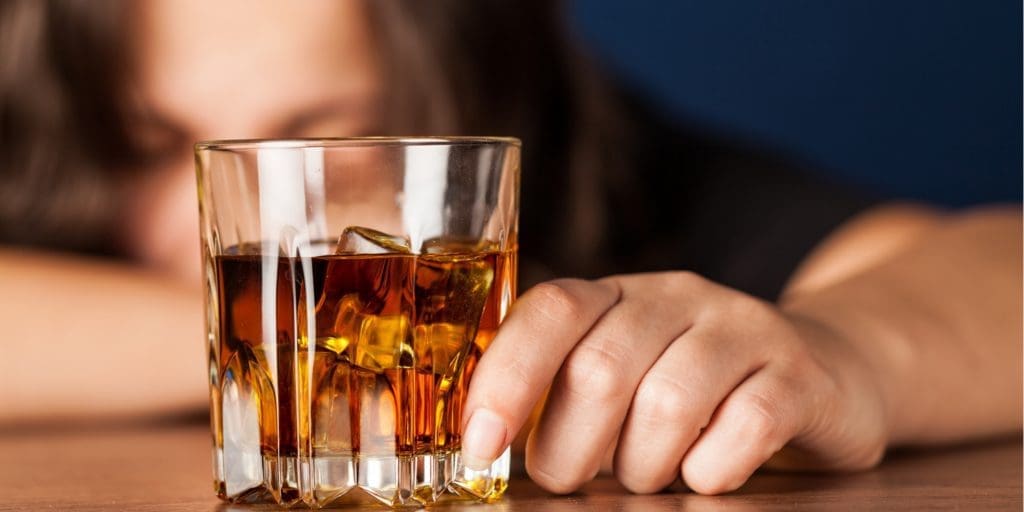

Because alcohol is legal, identifying signs of alcohol addiction is often easier than it is for drug addiction. This is because people face less fear and pressure to hide their substance abuse. For example, you might find bottles of liquor in an alcoholic’s room, or you might notice that your loved one smells of alcohol even when you haven’t seen them drink.
Other common signs of alcohol addiction are:
- Making up reasons or occasions to drink
- Loss of coordination
- Bouts of anger or weepiness
- Trouble succeeding at work
- Abandoning hobbies and interests
If you’re unsure if your loved one drinks enough for it to be an addiction, it may be time to have a conversation with them about their drinking habits. The line between recreational drinking and alcohol abuse is not always clear, so it’s important to express to them that their drinking is becoming an issue. But how should you handle that sort of conversation?
Addressing the Signs of Addiction
When you suspect addiction in a loved one, looking for the signs of addiction is a good way to see if you should be worried. But once you’ve confirmed that they may be engaging in substance abuse, the next step is to have a conversation with them about your concerns.
It’s important to avoid casting judgements or criticizing in this conversation. In many cases, addiction occurs as a response to existing mental health issues. These are called co-occurring disorders, wherein addiction and mental illness both worsen each other over time. This cycle can feel impossible to escape, so it’s important to emphasize that you want to help your loved one recover, rather than stressing that they have done something wrong.
Part of showing your support should include finding local resources for addiction treatment in Port St. Lucie, Florida. For example, looking into local detox options could be a great way to help your loved one start their recovery on the right foot.
If you suspect that your loved one has turned to substance abuse as a means to cope with mental health issues, then looking into local dual diagnosis programs could help them. These specialized programs treat co-occurring disorders in a comprehensive way, where both mental health restoration and addiction recovery can happen simultaneously. This allows for complete healing, which can make all the difference in long-term addiction recovery.
By helping provide your loved one with addiction recovery resources, you can demonstrate to them that you want to support them in their recovery. And when someone is struggling with addiction, that support can be invaluable.
If you see signs of addiction in your loved one’s behavior, it’s time to start looking at your options. If you have any questions about how we can help provide addiction recovery programming, call our friendly admissions specialists at (772) 238-7734 or ask your questions online. We understand that this can be a frightening time, but we’re here to support both you and your loved one in recovery.

